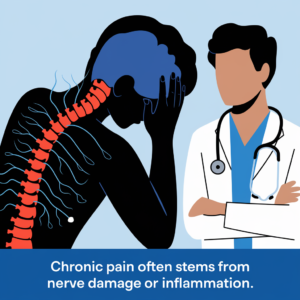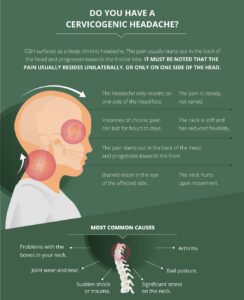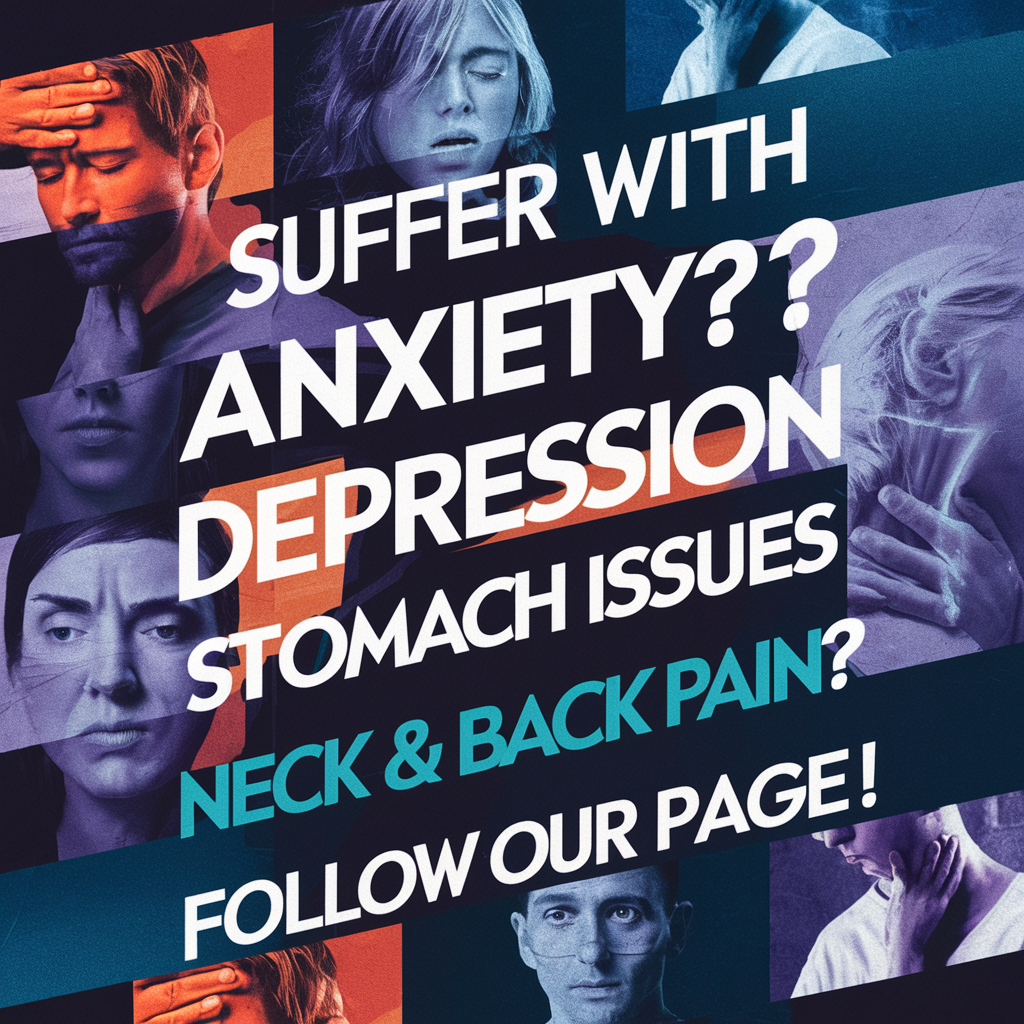
The Struggle with Chronic Health Issues
Living with chronic health issues can be incredibly challenging, affecting every aspect of daily life. From persistent headaches and anxiety to depression, stomach problems, neck pain, and back pain, these conditions can feel overwhelming. Each day presents a new battle, and finding effective ways to manage and cope with these issues is a journey many of us face.
This article shares my personal health journey and those of others who have battled similar conditions. Our website is dedicated to providing support, resources, and inspiration for anyone struggling with these debilitating health issues. By sharing our stories and the strategies that have helped us, we aim to create a community of understanding and encouragement.
Chronic health issues often intertwine, with physical pain exacerbating mental health struggles and vice versa. Understanding these connections and finding comprehensive solutions is crucial for achieving better health and well-being.
Whether you’re dealing with relentless headaches, the weight of anxiety and depression, or the discomfort of stomach issues and chronic pain, you’re not alone. This article will explore each of these challenges in depth, offering personal insights and practical advice to help you on your path to wellness. Ginger oil can be a big help.

Battling Chronic Headaches: My Personal Experience
Chronic headaches have been a relentless companion in my life, often disrupting my daily activities and leaving me drained. The throbbing pain would start unexpectedly, making it difficult to focus on work or enjoy time with family and friends. Over the years, I’ve tried countless remedies and treatments, seeking relief from the constant discomfort.
The Impact of Headaches on Daily Life
Living with chronic headaches means planning your day around potential pain. Social events, work deadlines, and even simple tasks become daunting when you’re constantly bracing for the next headache. This condition not only affects physical well-being but also takes a toll on mental health, often leading to increased anxiety and stress.
Something that could be causing you problems all over your body, that you probably have not even heard of is called Eco-Anxiety, and it is a problem that is bigger than expected! Click here to read more about it
Coping Strategies and Treatments That Helped
Through trial and error, I discovered several strategies that significantly reduced the frequency and severity of my headaches:
- Regular Hydration: Staying well-hydrated is crucial, as dehydration is a common trigger for headaches.
- Healthy Diet: Maintaining a balanced diet and avoiding trigger foods like caffeine, alcohol, and processed foods can help prevent headaches.
- Stress Management: Techniques such as meditation, yoga, and deep-breathing exercises have been invaluable in managing stress and reducing headache occurrences.
- Adequate Sleep: Ensuring a consistent sleep schedule and creating a restful environment can prevent sleep-deprivation-induced headaches.
- Medical Consultation: Seeking advice from healthcare professionals and exploring prescribed medications or therapies tailored to my specific condition has been essential.
For a more comprehensive look at managing headaches, including expert tips and further strategies, visit Headache Management Strategies.
Sharing these experiences and solutions can hopefully provide others with new ideas and encouragement in their journey to manage chronic headaches. Remember, it’s important to consult with healthcare professionals to find the most effective treatment plan tailored to your needs.
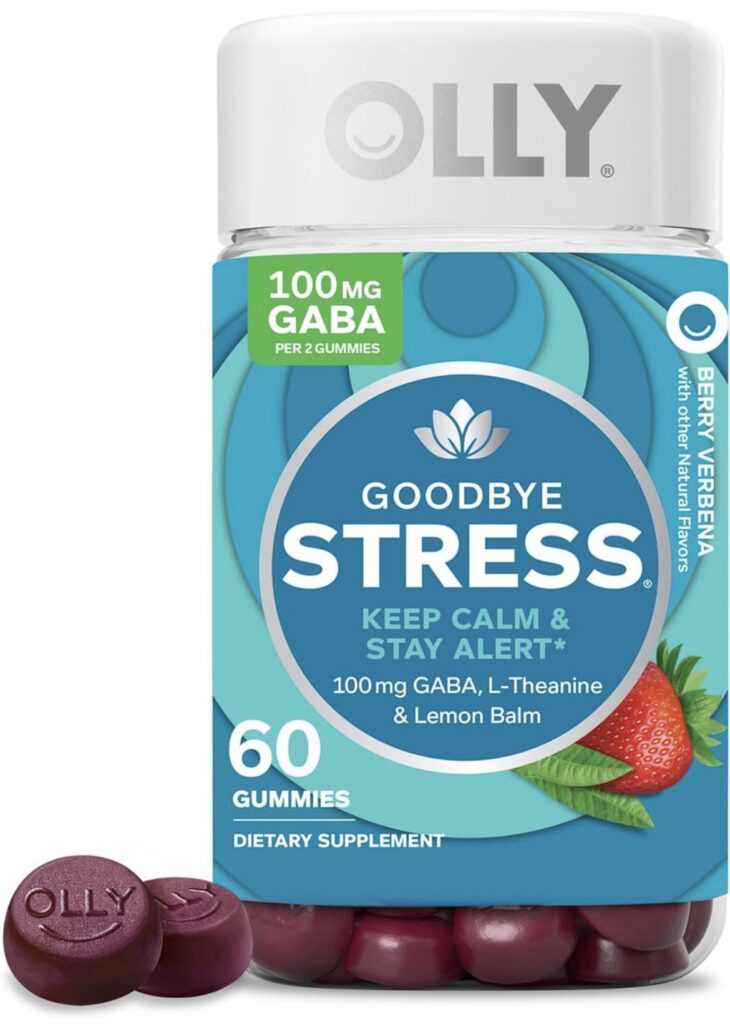
Dealing with Anxiety: Finding Peace in Chaos
Anxiety has been a persistent shadow in my life, often creeping in when least expected and turning everyday situations into overwhelming challenges. It manifests as a constant state of worry, physical tension, and sometimes debilitating panic attacks. Over the years, I have learned various strategies to manage and cope with anxiety, finding moments of peace amidst the chaos.
The Impact of Anxiety on Daily Life
Living with anxiety means constantly being on edge. Simple tasks like attending social events, speaking in public, or even driving can become monumental hurdles. The physical symptoms—racing heart, shortness of breath, and muscle tension—coupled with incessant worry, can severely impact both personal and professional life.
Techniques and Practices That Have Helped Manage Anxiety
Here are some methods that have significantly helped me manage my anxiety:
- Mindfulness and Meditation: Practicing mindfulness and meditation daily helps calm the mind and reduce stress. Even a few minutes of focused breathing can make a difference.
- Exercise: Regular physical activity, whether it’s a brisk walk, yoga, or strength training, releases endorphins that naturally reduce anxiety levels.
- Therapy and Counseling: Speaking with a therapist has provided invaluable insights and coping strategies tailored to my experiences.
- Routine: Establishing a consistent daily routine provides a sense of control and stability, which can help alleviate anxiety.
- Avoiding Stimulants: Reducing or eliminating caffeine and alcohol intake has a noticeable impact on my anxiety levels.
- Support Network: Leaning on friends and family for support and talking openly about my struggles has made a significant difference.
For more in-depth strategies and professional advice on managing anxiety, visit Effective Anxiety Coping Techniques.
Anxiety can feel isolating, but knowing that others have successfully navigated similar struggles provides hope and encouragement. It’s important to seek professional help and explore various coping mechanisms to find what works best for you.

Overcoming Depression: A Journey to Hope
Depression is a profound and often misunderstood condition that has affected me deeply. It can feel like an overwhelming weight, making even the simplest tasks seem insurmountable. However, through a combination of strategies and support, I have found a path to hope and recovery.
The Impact of Depression on Daily Life
Depression drains energy, motivation, and joy from everyday activities. It can manifest as persistent sadness, a lack of interest in activities once enjoyed, changes in appetite and sleep patterns, and difficulty concentrating. The emotional and physical toll can be devastating, affecting personal relationships, work, and overall quality of life.
Methods and Therapies That Have Been Beneficial
Here are some approaches that have significantly helped me manage and overcome depression:
- Therapy and Counseling: Regular sessions with a therapist provided a safe space to explore my feelings and develop coping strategies. Cognitive Behavioral Therapy (CBT) has been particularly effective.
- Medication: Under the guidance of a healthcare professional, antidepressants have helped stabilize my mood and improve my overall mental health.
- Routine and Structure: Establishing a daily routine and setting small, achievable goals has helped me regain a sense of purpose and control.
- Physical Activity: Exercise, whether it’s running, yoga, or strength training, has proven benefits for mental health by releasing endorphins and improving mood.
- Social Support: Connecting with friends and family, even when it feels challenging, has provided much-needed emotional support and a sense of belonging.
- Mindfulness and Relaxation Techniques: Practices like meditation, deep-breathing exercises, and mindfulness have helped me stay grounded and manage stress.
- Creative Outlets: Engaging in creative activities such as writing, painting, or playing music has been therapeutic and uplifting.
For further insights and professional advice on managing depression, visit Depression Management and Recovery.
Understanding that depression is a common and treatable condition is crucial. Seeking help and exploring various treatments can lead to significant improvements in mental health. Sharing these personal experiences can offer hope and encouragement to others facing similar challenges.

Navigating Stomach Issues: From Discomfort to Relief
Stomach issues have been a persistent and uncomfortable part of my health journey. From bloating and cramps to more severe digestive problems, these issues have often disrupted my daily life. Understanding the connection between mental health and digestive health has been key to finding relief and improving my overall well-being.
The Impact of Stomach Issues on Daily Life
Digestive problems can significantly affect one’s quality of life. Symptoms such as abdominal pain, bloating, gas, and irregular bowel movements can make simple activities challenging. The discomfort can also lead to increased stress and anxiety, creating a vicious cycle where mental and physical health issues exacerbate each other.
Effective Remedies and Dietary Changes
Through experimentation and professional guidance, I have found several strategies that help manage my stomach issues:
- Dietary Adjustments: Identifying and avoiding trigger foods, such as dairy, gluten, and certain high-fiber foods, has made a noticeable difference. Following a low-FODMAP diet has also helped reduce symptoms.
- Probiotics and Supplements: Incorporating probiotics into my diet has improved my gut health. Additionally, supplements such as peppermint oil and digestive enzymes have provided relief.
- Hydration: Drinking plenty of water throughout the day helps maintain digestive health and prevent constipation.
- Mindfulness and Stress Reduction: Practices like yoga, meditation, and deep-breathing exercises have reduced stress levels and improved digestive function.
- Regular Physical Activity: Engaging in regular exercise helps stimulate digestion and reduce symptoms.
- Professional Help: Consulting with gastroenterologists and nutritionists has been crucial in developing a personalized treatment plan.
For more detailed advice and tips on managing stomach health, visit Stomach Health and Remedies.
Understanding the link between mental health and digestive issues has been pivotal in my journey. By addressing both aspects, I have been able to find more comprehensive and effective solutions. Sharing these experiences can provide valuable insights and support for others dealing with similar issues.
Confronting Neck Pain: Finding Relief and Mobility
Neck pain has been another significant challenge in my health journey. Persistent discomfort and stiffness in the neck can greatly affect mobility and quality of life. Through various treatments and lifestyle adjustments, I have found ways to alleviate this pain and regain my mobility.
The Impact of Neck Pain on Daily Life
Chronic neck pain can make daily activities, such as driving, working at a computer, and even sleeping, uncomfortable and difficult. The pain often radiates to the shoulders and upper back, leading to tension headaches and further discomfort. This condition can be both physically and mentally exhausting, impacting overall well-being.
Effective Treatments and Exercises
Here are some methods that have helped me manage and reduce neck pain:
- Physical Therapy: Working with a physical therapist has provided tailored exercises and treatments to improve neck strength and flexibility.
- Ergonomic Adjustments: Adjusting my workstation to ensure proper posture has been crucial. Using an ergonomic chair, placing the computer screen at eye level, and taking regular breaks to stretch have all made a difference.
- Stretching and Strengthening Exercises: Daily stretches and exercises targeting the neck and upper back muscles help maintain flexibility and reduce pain.
- Heat and Cold Therapy: Applying heat pads to relax tight muscles and using ice packs to reduce inflammation have provided relief.
- Massage Therapy: Regular massages have helped alleviate muscle tension and improve circulation in the neck area.
- Mindfulness and Relaxation Techniques: Practices like yoga and meditation help reduce overall stress and muscle tension.
- Proper Sleep Posture: Using a supportive pillow and ensuring a proper sleeping position have minimized neck strain during sleep.
For more tips and strategies on managing neck pain, visit Neck Pain Solutions.
Managing neck pain requires a combination of treatments and lifestyle changes. By addressing the root causes and consistently applying these strategies, significant relief and improved mobility can be achieved. Sharing these experiences can help others find effective solutions and support in their journey.
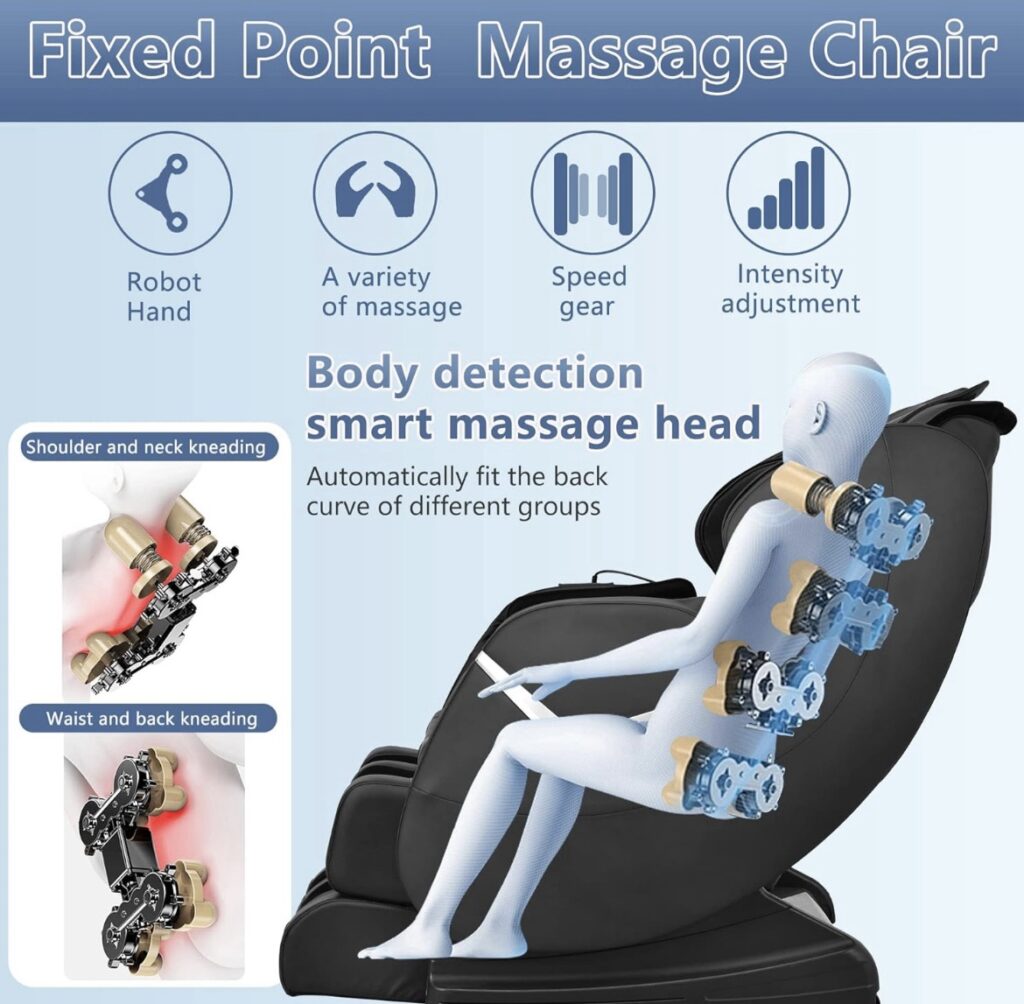
Tackling Back Pain: Strategies for a Pain-Free Life
Back pain has been a persistent issue that has significantly impacted my daily life. The discomfort ranges from a dull ache to sharp, debilitating pain, making it difficult to perform everyday tasks. Through a combination of treatments and lifestyle adjustments, I have found effective ways to manage and alleviate back pain.
The Impact of Back Pain on Daily Life
Chronic back pain can interfere with many aspects of life, from simple movements to sleeping comfortably. It can hinder productivity at work, limit physical activity, and affect mental health due to ongoing discomfort and stress. Finding effective strategies to manage back pain is crucial for improving overall quality of life.
Successful Methods for Pain Relief and Prevention
Here are some approaches that have helped me manage and reduce back pain:
- Physical Therapy: Engaging in physical therapy has provided targeted exercises and treatments to strengthen the back muscles and improve flexibility.
- Regular Exercise: Maintaining a routine of low-impact exercises such as walking, swimming, and yoga helps keep the back muscles strong and flexible.
- Ergonomic Adjustments: Ensuring proper posture at work and at home, using ergonomic furniture, and taking regular breaks to stretch can prevent back strain.
- Core Strengthening: Strengthening the core muscles through exercises like planks and abdominal workouts supports the back and reduces pain.
- Heat and Cold Therapy: Using heat pads to relax muscles and cold packs to reduce inflammation can provide significant relief.
- Proper Lifting Techniques: Learning and practicing proper lifting techniques helps prevent back injuries.
- Mindfulness and Stress Reduction: Techniques such as meditation and deep-breathing exercises help reduce overall stress, which can contribute to muscle tension and back pain.
For comprehensive strategies and tips on managing back pain, visit Back Pain Relief Tips.
Addressing back pain involves a holistic approach that includes physical, ergonomic, and mental health strategies. By consistently applying these methods, significant relief and improved quality of life can be achieved. Sharing these personal experiences can provide valuable insights and support for others facing similar challenges.
The Intersection of Mental and Physical Health
The connection between mental and physical health is profound, and understanding this relationship is key to managing chronic conditions. Mental health issues like anxiety and depression can exacerbate physical pain, while chronic physical conditions can lead to increased stress and mental health struggles. A holistic approach that addresses both aspects can lead to better overall well-being.
How Mental and Physical Health Are Interconnected
Mental and physical health are deeply intertwined. Stress and anxiety can cause physical symptoms such as headaches, muscle tension, and stomach issues. Conversely, chronic pain and physical discomfort can contribute to feelings of depression and anxiety. Recognizing and addressing this interplay is essential for effective management and improvement.
Personal Insights into Managing Both Aspects
Here are some strategies that have helped me manage the intersection of mental and physical health:
- Integrated Treatment Plans: Working with healthcare providers who understand the connection between mental and physical health has been crucial. Coordinating care between my therapist, physician, and physical therapist ensures a comprehensive approach.
- Mind-Body Practices: Activities like yoga, tai chi, and mindfulness meditation help reduce stress and improve physical health. These practices focus on the mind-body connection, promoting relaxation and reducing pain.
- Regular Exercise: Physical activity releases endorphins, which help improve mood and reduce pain. Exercise routines that combine cardio, strength training, and flexibility exercises provide balanced benefits.
- Stress Management Techniques: Techniques such as deep-breathing exercises, progressive muscle relaxation, and guided imagery help manage stress and its physical manifestations.
- Support Networks: Building a strong support network of friends, family, and support groups provides emotional support and practical advice, helping to alleviate both mental and physical stress.
- Healthy Lifestyle Choices: Maintaining a balanced diet, getting adequate sleep, and staying hydrated are foundational practices that support overall health.
For more insights into managing mental and physical health issues, consider exploring Effective Anxiety Coping Techniques and Stomach Health and Remedies.
Understanding and addressing the connection between mental and physical health has been a transformative aspect of my journey. By taking a holistic approach, I have been able to improve my overall well-being and find better ways to manage both mental and physical symptoms. Sharing these experiences can help others find effective strategies for their health challenges.
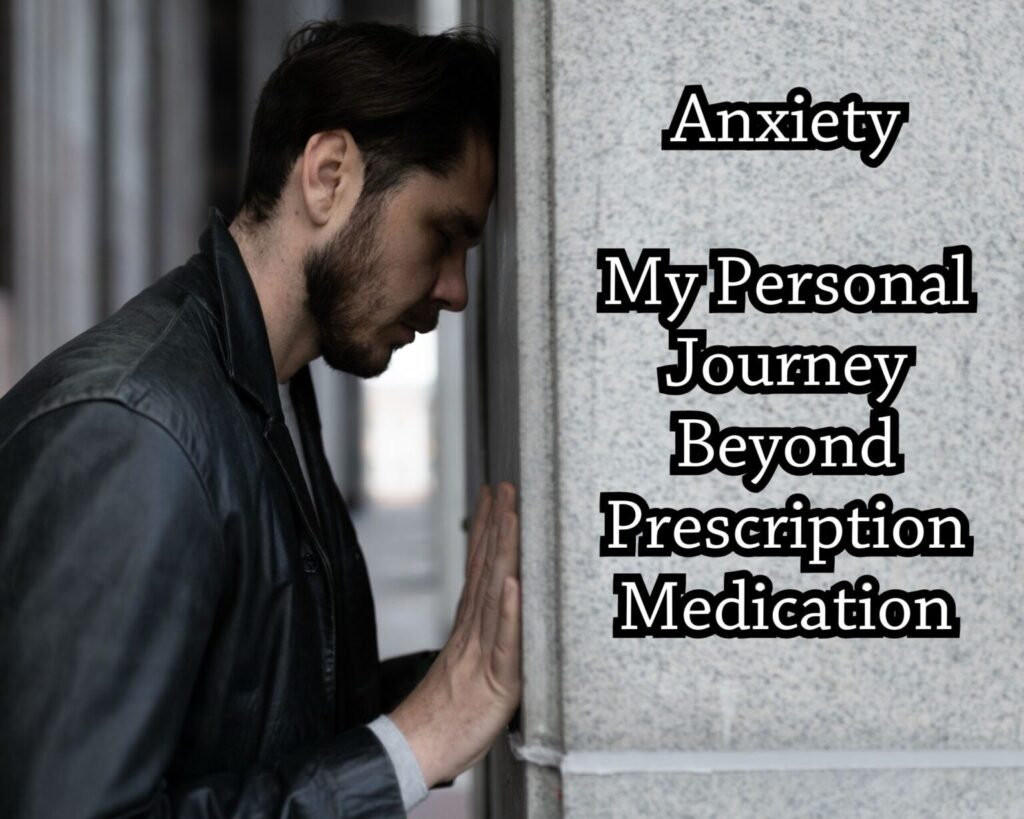
Inspirational Stories from Others
One of the most empowering aspects of my health journey has been connecting with others who share similar experiences. Hearing their stories of resilience, perseverance, and triumph over adversity has provided me with inspiration and hope. These shared experiences create a sense of community and offer valuable insights into managing various health challenges.
Sharing Stories of Resilience and Success
Hearing about the journeys of others who have faced chronic pain, mental health struggles, and other health issues can be incredibly motivating. These stories often highlight the strength and determination required to overcome significant obstacles and achieve better health. Here are a few ways these stories have inspired me and can inspire you:
- Learning from Others’ Experiences: Understanding the strategies and treatments that have worked for others can provide new ideas and approaches for managing your own health issues.
- Building a Support Network: Connecting with others who share similar challenges creates a supportive community where you can share experiences, advice, and encouragement.
- Finding Hope and Motivation: Hearing about the successes of others can reignite your own determination and hope, reminding you that improvement is possible even in the face of chronic health issues.
Highlighting Different Strategies and Successes
Sharing a variety of stories allows us to see the diverse ways people manage their health. Some might find relief through medical treatments, while others benefit from lifestyle changes, alternative therapies, or a combination of approaches. Here are some inspiring stories and the strategies they highlight:
- Mindfulness and Relaxation: Many have found significant relief from chronic pain and anxiety through mindfulness practices and relaxation techniques.
- Holistic Approaches: Combining physical therapy, exercise, and nutritional changes has led to improvements for those with chronic pain and digestive issues.
- Professional Help: Seeking help from therapists, counselors, and medical professionals has been a turning point for many struggling with mental health issues.
- Community Support: Building connections with support groups and online communities has provided emotional and practical support for countless individuals.
For a closer look at how others manage similar health challenges, explore resources like Headache Management Strategies, Depression Management and Recovery, and Back Pain Relief Tips.
Sharing and learning from these stories fosters a sense of solidarity and understanding. It reminds us that we are not alone in our struggles and that there are multiple paths to finding relief and improving our health.
The Path to Wellness
Navigating through chronic health issues such as headaches, anxiety, depression, stomach problems, neck pain, and back pain is undoubtedly challenging. However, by sharing personal experiences and strategies, we can find hope, support, and effective solutions. My journey has been filled with trials and triumphs, and it is through these experiences that I have learned to manage my health better and inspire others to do the same.
Recap of the Personal Health Journey
Throughout this article, I’ve shared my personal stories and the strategies that have helped me manage various health challenges. From finding effective headache treatments and coping with anxiety and depression, to addressing stomach issues and chronic pain, each step has been crucial in improving my overall well-being.
Key Takeaways
- Holistic Approach: Addressing both mental and physical health is essential for comprehensive wellness. Practices like mindfulness, regular exercise, and proper diet play significant roles in managing symptoms.
- Professional Guidance: Consulting with healthcare providers ensures that you receive tailored advice and treatments that cater to your specific needs.
- Support Networks: Building a community of support through friends, family, and online groups can provide emotional and practical assistance.
- Consistency and Patience: Managing chronic health issues requires consistent effort and patience. Progress may be slow, but persistence is key.
Encouragement to Seek Better Health
Your journey to wellness is unique, and finding what works best for you may take time. Don’t hesitate to seek professional help, explore different treatments, and connect with others who share similar experiences. Remember, improvement is possible, and each step you take towards better health is significant.
For further resources and stories that can guide and inspire you, visit Health Survivalist for comprehensive articles on managing headaches, anxiety, depression, stomach issues, neck pain, and back pain. Explore Headache Management Strategies, Effective Anxiety Coping Techniques, Depression Management and Recovery, Stomach Health and Remedies, Neck Pain Solutions, and Back Pain Relief Tips.
By sharing our stories and supporting one another, we can all work towards a healthier, happier life. Thank you for joining me on this journey, and I hope these insights and experiences provide you with the inspiration and tools you need to improve your health and well-being.
We hope you enjoy our website which is free to access any time of day, if you have the same or similar issues as us, we definitely can understand and Pray for you on our journey. You can also find great comfort on this earth with Jesus, visit PlansWithJesus.com
As an Amazon Associate we earn from qualifying purchases through some links in our articles.



